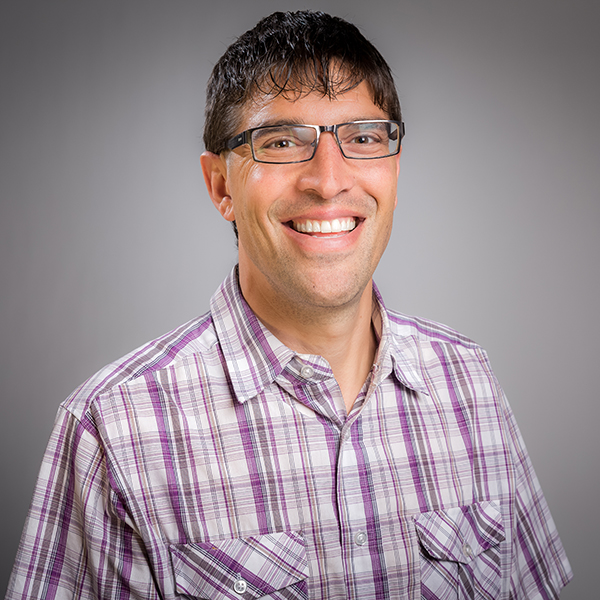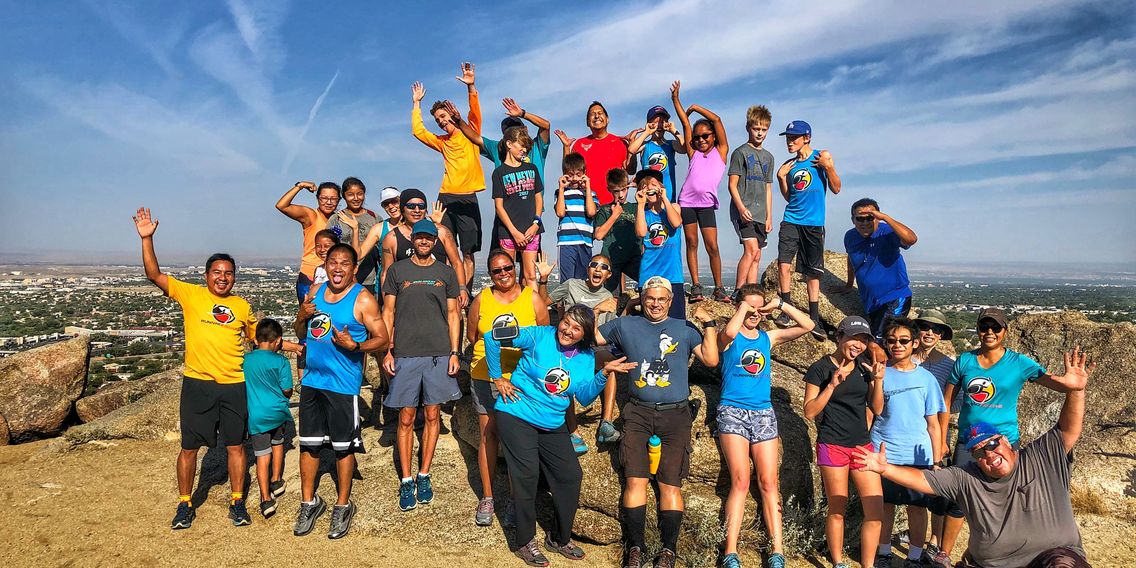Participants who met for 40 minutes of running and walking four days a week for 10 weeks reported marked improvements in social and emotional well-being, University of New Mexico researchers have found.
In a research brief published earlier this month in the journal Health Promotion and Practice, a team led by Anthony Fleg, MD, associate professor in the UNM Department of Family & Community Medicine and director of Community Wellness in the Health Sciences Office of Diversity, Equity and Inclusion, reported that the Running Medicine program improved health in multiple domains.
Where most fitness program focus on quantitative measures of health improvement, like improved performance, Running Medicine attends to participants’ qualitative experience, said Fleg, who helped launch the program in 2016 under the auspices of the Native Health Initiative.
Competition is not the point, he says. Each event starts with participants standing in a circle and stretching together. Some people run, others walk and a few even do yoga or high-intensity tactical training workouts.

Movement heals and leads to wellness. We find ways to be inclusive and move together toward wellness, toward healing.
“Movement heals and leads to wellness,” he said. “We find ways to be inclusive and move together toward wellness, toward healing. The speed, the time, the distance is not the focus, for once.”
Running Medicine meetups, which can draw upwards of 100 participants, run from spring through fall, occur in locations like UNM’s North Golf Course, Rio Rancho/Westside and the Alameda open space in the Rio Grande bosque. Running Medicine also operates at Zuni Pueblo, the pueblos of Acoma and Laguna and Algodones Elementary School, adjacent to San Felipe Pueblo.
The new study focused on the experiences of 77 people who participated in Running Medicine events during the spring of 2019, 44% of whom were Native American. They completed questionnaires reporting on their levels of physical activity and progress in the domains of mind, body, spirit and social wellness following their participation in the 10-week program.
“We looked at some realms that are often missed in fitness programs,” Fleg said. “Mental health – did it work for stress relief? Spiritual health, did it connect you with however you see spirituality? We looked at did it connect you to other people – did it make you feel a sense of belonging? That hasn’t been looked at all as an outcome in fitness programs.”
Overall, the participants reported the greatest improvement in the realm of social connectedness, Fleg said, followed (in order) by mental and emotional health, spiritual health and physical health. Social connection is essential for health, he added.
“You can’t feel healthy if you don’t feel connected to those around you,” Fleg said. “One in two Americans say they don’t have a single person that they can confide in. We’re connected by all the devices in society, but people are more disconnected than ever.”
Running Health receives substantial support from UNM Health and Health Sciences, as well as local businesses and community groups, he said. “We have a huge amount of community support and partners, including UNM entities that allow us to do this.”
You can learn more about Running Medicine here.

